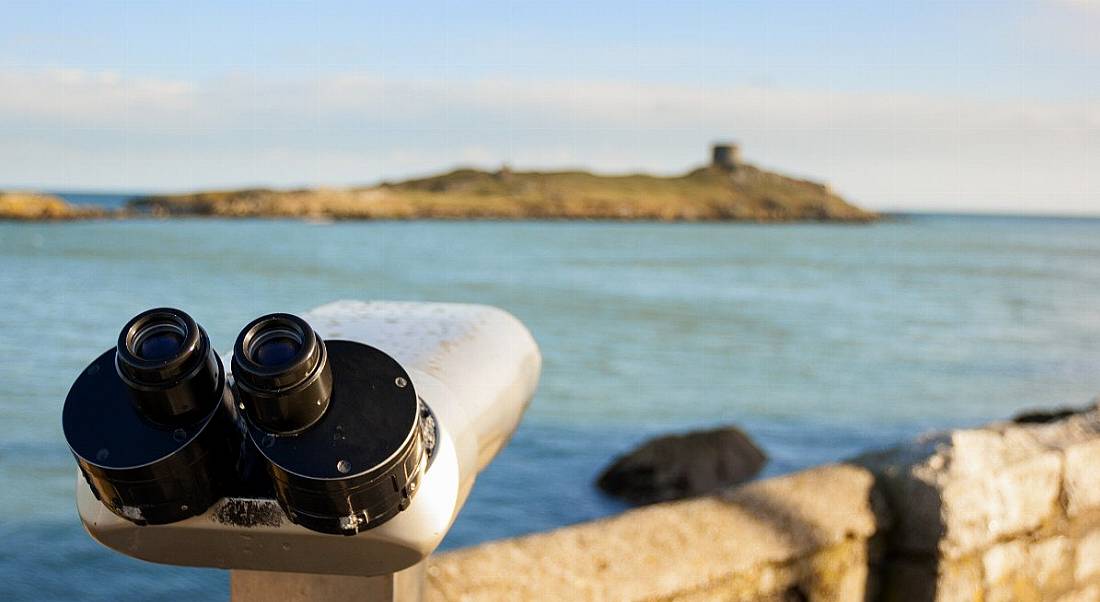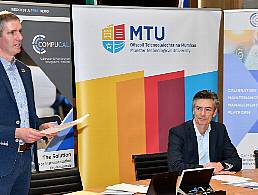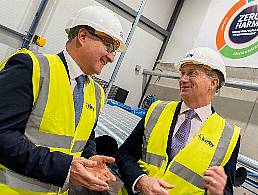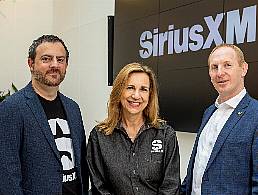With its new Future Jobs strategy, can the Irish Government create a country that is technologically always ‘on’?
The Irish Government’s new Future Jobs strategy aims to see Ireland become a leading pioneer in technology adoption and testing, particularly through lifelong learning and the rising tide of the regional economy.
Future Jobs Ireland 2019: Preparing Now for Tomorrow’s Economy is described by leaders as a new, whole-of-Government framework for the next phase of Ireland’s economic development.
‘We need to see lifelong learning as the norm so we are adaptable to new technology and sectors’
– LEO VARADKAR
Crucially, it takes into account that there are now 390,000 more people at work in Ireland since 2012 and that as the country approaches full employment, it needs to ask how it will sustain these numbers in the face of technological change and the rise of automation as well as trends such as flexible working and lifelong learning.
Plan to double lifelong learning rate
“I want Ireland to be a country that works to live, not lives to work,” An Taoiseach Leo Varadkar, TD, said yesterday (10 March). “Businesses need to consider new ways of attracting and retaining talent through remote and flexible working options – women as well as men can get the job done – so that people living in rural areas can work for Google, Facebook and Apple without having to commute to Cork city or Dublin. We need to see lifelong learning as the norm so we are adaptable to new technology and sectors. And today we are announcing that we have committed to doubling our lifelong learning rate to 18pc by 2025.
“Ireland is one of the most attractive places for foreign direct investment [FDI]. But the next phase of our national development should be Irish-owned SMEs succeeding at home and then going global. By confronting head-on the challenges we face in the world of work, we can ensure we are able to prosper from the transformations that are coming. We can face the future with confidence because of the preparations we have made today,” Varadkar said.
The new policy framework will cover a range of issues, such as: flexible working options for all employees, a strategy for remote working, helping mothers to return to work, reviewing income tax arrangements for second earners, doubling lifelong learning participation, training for emerging technologies, and career advice for existing workers, to name a few.
Clusters and linkages between start-ups and multinationals
“As we approach full employment, it is now time to shift our jobs focus,” said Minister for Business, Enterprise and Innovation Heather Humphreys, TD.
“It is no longer just a question of more jobs; instead, we must focus on growing highly productive and skilled people creating and working in highly productive and sustainable businesses,” Humphreys said.
“While Future Jobs Ireland 2019 is a national framework, it will have a regional impact. For example, the strategy sees the country becoming a leading pioneer in technology adoption and testing, and sets out higher ambitions for our research, development and innovation, especially by SMEs.
“Crucially, it will expand or develop technology testbeds in regional locations. This includes extending the Enterprise Ireland-IDA Irish Manufacturing Research technology centre in Mullingar to accommodate robotics and augmented-reality and virtual-reality technologies. It also includes the establishment of an advanced manufacturing centre by IDA Ireland and expanding the Tyndall National Institute in Cork to provide greater engagement with industry in areas like micro- and nano-electronics.
“Furthermore, among other things, we will be developing a national centre of excellence on high performance and Nearly Zero Energy buildings in Wexford, and positioning the mid-west as a leader internationally as a location for the testing of autonomous vehicles.
“Ireland has a hard-earned reputation as a location of choice for FDI. As we move forward, we want to ensure that our reputation is equally as strong in terms of our support of indigenous businesses and entrepreneurs. Through Future Jobs Ireland, we will enhance the powers of our Local Enterprise Offices to ensure that any gaps in supports for indigenous businesses are addressed. We want to ensure that all ambitious Irish companies, regardless of size, are supported.”
The actions include the establishment of top teams to exploit opportunities in areas such as renewables, artificial intelligence and government tech; the development of a national artificial intelligence strategy; the delivery of a new female entrepreneurship strategy; the creation of new policies, including industry 4.0 and a national digital strategy; the strengthening of the Local Enterprise Offices’ powers; and the establishment of clusters of multinationals and start-ups, developing greater linkages between the two.
The strategy was welcomed by Science Foundation Ireland director general Mark Ferguson, who is also the Government of Ireland’s chief scientific adviser.
“Innovation and technological advancement are driving change in our economy and society at a faster pace than ever before,” Ferguson said.
“The aim of this plan is to focus on delivering the benefits from this disruptive change to invest in people with ideas and talent, to bring the key stakeholders together to collaborate on the challenges we face, thus ensuring we have sustainable economic development in the coming years.”




